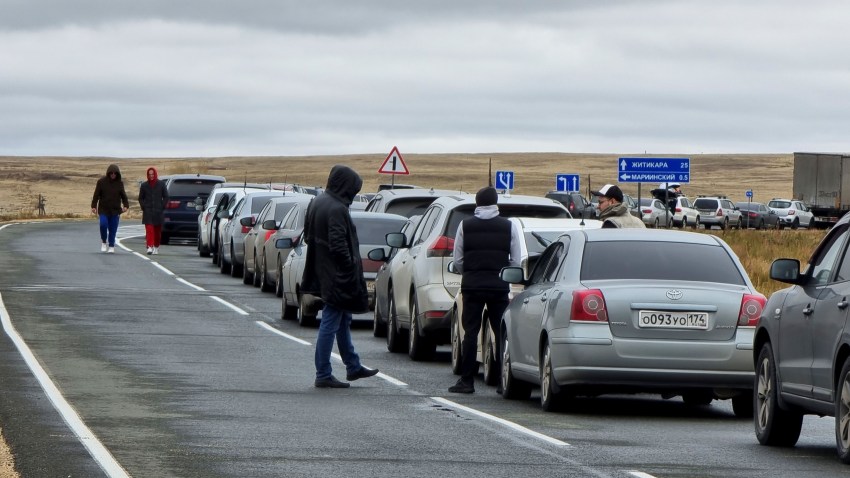Russia’s invasion of Ukraine predictably triggered a massive exodus of Ukrainian refugees from the warzone. But beyond the battlefields and far from the civilian areas that came under assault in the military onslaught launched by Russian President Vladimir Putin, another mass migration began almost immediately after the start of the war. As Putin cracked down on dissent at home, Russians opposed to the war—and to their president—started leaving the country in large numbers.
The outflows from Russia are much smaller than the huge refugee movement from Ukraine. After all, the invasion last February created the biggest refugee crisis in Europe since World War II, with more than 18 million Ukrainians fleeing when the fighting started. Many have since returned, but today more than 8 million remain scattered across Europe, according to the United Nations Refugee Agency. That’s almost 20 percent of Ukraine’s prewar population.
By contrast, the number of people who fled Russia is variously estimated between 500,000 and 1 million. Although the number could be much higher, proportionally it’s a much smaller number than for Ukraine. And yet, it is an exodus with major political implications.

